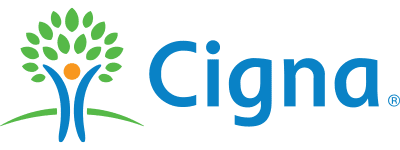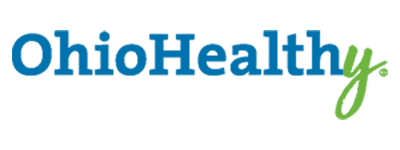Relapse is the most common and challenging aspect of the drug rehabilitation process. Completing a rehab program is a courageous and significant accomplishment, but it’s essential to recognize the path to recovery doesn’t end there. For those who have successfully finished a drug rehabilitation program, the potential to relapse and the thought of returning to substance abuse can be overwhelming and disheartening. However, it is crucial to understand that relapse does not equal failure but rather a part of the journey towards lasting recovery.
In this guide, we will explore the causes of relapse, strategies for avoiding it, and critical steps for coping with it should relapse occur. By understanding the triggers and potential challenges of relapse, you can significantly reduce the risk of relapse. The Ridge Ohio develops coping strategies for drug rehab graduates to help them overcome a relapse. These techniques better prepare them to maintain sobriety, continue on the path to recovery, and lead healthier lives.
85 to 86% of people that come to rehab relapse after receiving formal treatment. Improvements in relapse rates have occurred as a result of medication-assisted treatment. Outcomes are greatly improved when medications are used to assist in the standard of care but only half of treatment centers use medication in the treatment of the disease of chronic addiction.
Dr Todd Carran
The importance of addressing relapse in drug rehabilitation
Relapse, a critical issue in drug rehabilitation, can set back an individual’s hard-won progress and potentially lead to further substance abuse. The Ridge Ohio believes confronting relapse head-on is a non-negotiable facet of the recovery journey, preventing a return to old habits and patterns while maintaining sobriety.
Failure to address the possibility can result in a cycle of treatment and relapse, making it challenging to achieve long-term recovery. Drug rehab graduates significantly increase their chances of success and lead fulfilling, substance-free lives by understanding the reasons behind relapse and developing strategies to prevent it. Addressing relapse is critical for the individual, their loved ones, and the wider community, as substance abuse has far-reaching consequences.
I understood, through rehab, things about creating characters. I understood that creating whole people means knowing where we come from, how we can make a mistake, and how we overcome things to make ourselves stronger
Samuel L. Jackson
At The Ridge Ohio, we believe it is crucial that relapse is addressed in drug rehabilitation to ensure the success and well-being of individuals in recovery.
Defining Relapse: Understanding the Return to Substance Abuse
Relapse, a common challenge faced by many individuals in recovery and occurring at any stage of the recovery process, is a term that signifies a return to substance abuse following a period of sobriety. For individuals navigating the path to recovery, understanding the definition of relapse is the first step in addressing this issue.
It is important to note that relapse does not necessarily mean the individual has failed in their recovery efforts but requires additional support and resources to maintain their sobriety. By recognizing the definition of relapse and its impact on the recovery process, individuals can be better equipped to address this issue and continue their journey to lasting recovery.
Common Causes of Relapse
Various factors can trigger relapse, and it’s essential to be aware of these common causes to better prevent and address them in the context of recovery.
Here are some common causes of relapse:
- Stress: High-stress levels, such as financial problems, relationship issues, or work-related concerns, can be a significant trigger for relapse. Individuals may turn to substances to cope with overwhelming stressors in their lives.
- Triggers: Certain people, places, or situations associated with substance abuse can trigger cravings and lead to relapse.
- Social Isolation: Feeling isolated or lonely can increase the risk of relapse. Social support is crucial in recovery, and when individuals are isolated, they may turn to substances for comfort.
- Complacency: Overconfidence or the belief that one can use substances casually without consequences can lead to relapse. This often happens when individuals underestimate the power of addiction.
- Financial Problems: Financial stress, including debt or job loss, can be a significant trigger. Substance use may seem like a temporary escape from these problems.
- Lack of Coping Skills: Insufficient coping skills to deal with life’s challenges can lead to relapse. Learning healthier ways to manage stress and emotions is critical in recovery.
- Lack of support: Individuals who do not have a strong support system or do not participate in aftercare programs are more likely to relapse.
- Mental health issues: Those who struggle with mental health conditions such as anxiety, depression, or trauma may be more likely to relapse. Impulsive decisions or lapses in judgment can lead to substance abuse, particularly in high-risk situations.
It is important to note that relapse is not limited to these factors and can be caused by various elements. By understanding the common causes of relapse, individuals in recovery can better prepare themselves for these potential triggers and develop strategies to cope effectively.
Seeking professional help, participating in therapy or support groups, and practicing healthy coping mechanisms are valuable tools in preventing relapse and maintaining sobriety.
Relapse and the Impact on Recovery
Relapse can significantly impact the recovery process for individuals and those around them.
Here are some of the consequences of relapse on recovery:
- Setback in progress: Relapse can undo an individual’s progress in their recovery and lead to a return to previous patterns of substance abuse.
- Decreased confidence and self-esteem: A relapse can lead to feelings of guilt, shame, and disappointment, which can negatively impact an individual’s confidence and self-esteem.
- Strained relationships: Substance abuse can damage relationships with friends and family, and relapse can exacerbate these problems. Individuals who relapse may lose the trust of their loved ones, making it harder to rebuild relationships and secure a support network.
- Increased risk of overdose: A return to substance abuse after a period of sobriety can increase the risk of overdose, especially if the individual has lost tolerance.
- Difficulty in seeking treatment: Relapse can make it harder for an individual to seek treatment in the future, as they may feel discouraged or embarrassed about their setback.
- Interference with daily life: Substance abuse can interfere with an individual’s ability to perform everyday tasks and responsibilities, and relapse can exacerbate these problems.
- Hindered personal growth: Relapse can stall personal growth and development. It may delay progress towards educational or career goals and impede the pursuit of hobbies and interests.
- Increased risk of future relapses: Each relapse can make future relapses more likely. It can become a pattern that is increasingly difficult to break.
- Mental health impact: Relapse can worsen mental health issues, often leading to increased anxiety, depression and other psychological challenges.
It is essential to understand that relapse does not equate to failure but is a part of the recovery process many people experience on their road to recovery. It can serve as a valuable learning experience by clearly exposing certain triggers and weaknesses. With the proper support and resources, individuals can bounce back from relapse, renew their commitment to recovery, and work toward lasting sobriety.
A popular quote states, “Relapse is part of recovery,” which is another way to say “get back to support recovery groups quickly before too much damage is done”.
Examples of Relapse Triggers or At-Risk Behaviors
Relapse triggers can vary significantly, but some common examples include:
- Stressful events: Job loss, financial problems, relationship issues, or family conflicts can trigger a return to substance abuse.
- Environmental triggers: Being in environments or situations associated with past drug or alcohol use can be a powerful trigger and lead to relapse. This might include visiting places where substance abuse occurred or spending time with certain people who still use.
- Emotional triggers: Negative emotions such as anger, sadness, loneliness, anxiety, or depression can trigger a return to substance abuse as individuals seek to numb or escape these feelings.
- Physical triggers: Health problems, chronic pain, or discomfort can trigger a return to substance abuse, especially if the individual previously sought relief through self-medication with drugs or alcohol.
- Social or peer pressure: Feeling pressure to use drugs or alcohol in social situations from friends or acquaintances who continue to use substances can be a compelling trigger for relapse, especially when individuals are trying to fit in or avoid conflict.
- Boredom or lack of structure: A lack of meaningful activities or structure can trigger a return to substance abuse.
- Celebrations or Special Occasions: Holidays, birthdays, and other special occasions can be triggers, as they often involve social gatherings where substances are present. These celebrations can trigger a relapse, especially if the individual previously used drugs in these situations.
- Exposure to Triggers in Media: Seeing drug or alcohol use portrayed positively in movies, TV shows, or social media can trigger cravings.
Strategies for Relapse Prevention: Building a Solid Recovery Plan
There are several strategies that individuals in recovery can use to avoid relapse, including:
- Identifying triggers: Recognizing the people, places, situations, and emotions that trigger cravings or temptations to use substances.
- Building a solid support system: Surrounding oneself with positive and supportive friends, family, and peers can help avoid relapse and maintain sobriety.
- Staying accountable: Attending private therapy, group counseling, or having a sponsor can provide accountability and help individuals stay on track in their recovery.
- Actively participating in treatment and aftercare programs: Participating in aftercare programs, such as support groups or therapy, can provide ongoing support and resources to help individuals maintain their sobriety. Joining support groups like Alcoholics Anonymous (AA) or Narcotics Anonymous (NA) can offer a sense of belonging and a platform to share experiences and strategies with others in recovery.
- Practicing self-care: Prioritizing physical and mental health by adopting a healthy lifestyle, including regular exercise, a balanced diet, adequate sleep, and mindfulness practices to improve overall well-being.
- Stress management: Learning effective stress-reduction techniques such as meditation, deep breathing exercises, or yoga to manage stress and avoid using substances as a coping mechanism.
- Avoiding high-risk situations: Identifying and avoiding people, places, and situations associated with substance abuse can help avoid relapse.
- Developing coping skills: Learning healthy coping mechanisms for managing stress and negative emotions can help avoid turning to substance abuse.
- Having a relapse plan: Developing a plan for managing cravings and triggers can help avoid relapse and maintain sobriety. Having a plan in place can be a lifesaver in critical moments.
How can family members deal with a loved one that relapses?
Dealing with a loved one’s relapse can be emotionally challenging, but responding with understanding, support, and a focus on their well-being is essential.
Here are some steps family members can take when a loved one relapses:
- Maintain a non-judgmental attitude: Family members must avoid blaming or shaming their loved one for their relapse. Instead, they should offer support and encouragement. Addiction is a complex disease, and relapse is a part of many people’s recovery journey.
- Encourage them to seek help: Family members can encourage their loved one to re-engage in treatment or attend support groups to help them get back on track. A relapse may indicate the need for a treatment adjustment or a different approach.
- Celebrate progress and effort: Acknowledge and celebrate any positive steps towards recovery, even small ones. Positive reinforcement can be motivating.
- Offer practical support: Family members can offer practical support, such as transportation or assistance with daily tasks, to help during this difficult time.
- Attend therapy or support groups: Family therapy can benefit the person in recovery and their family members. It can help address underlying family dynamics and improve communication for dealing with their loved one’s relapse.
- Set boundaries: Family members should set clear boundaries for their well-being, such as not enabling their loved one’s substance abuse nor exposing themselves to dangerous situations.
- Take care of yourself: Dealing with a loved one’s relapse can be emotionally challenging, so family members must prioritize self-care and well-being. Consider therapy for yourself if needed.
Remember that addiction is a complex and chronic condition, and relapse is a part of many people’s recovery journeys. By offering unconditional love, support, and a non-judgmental environment, family members can play a crucial role in helping their loved one navigate through a relapse and continue on the path to lasting sobriety.
















